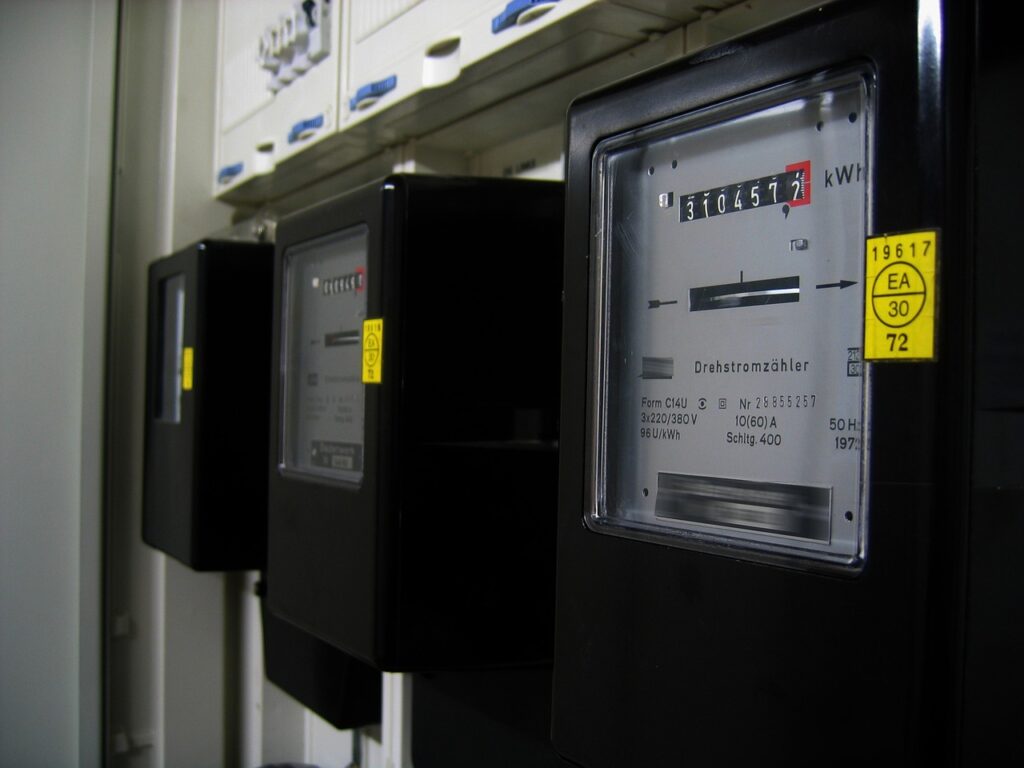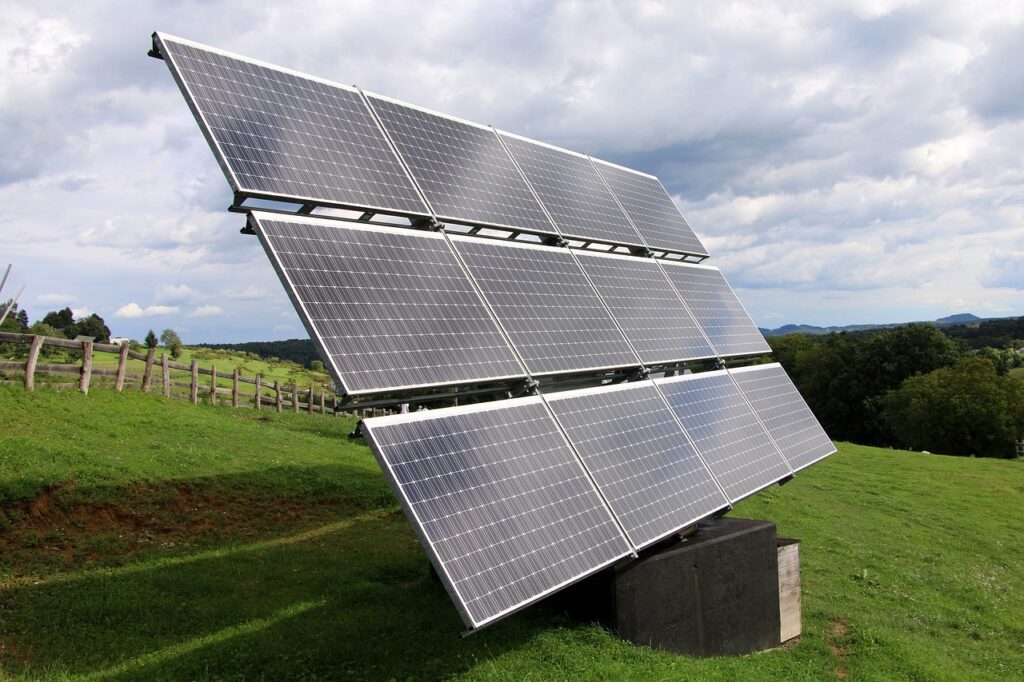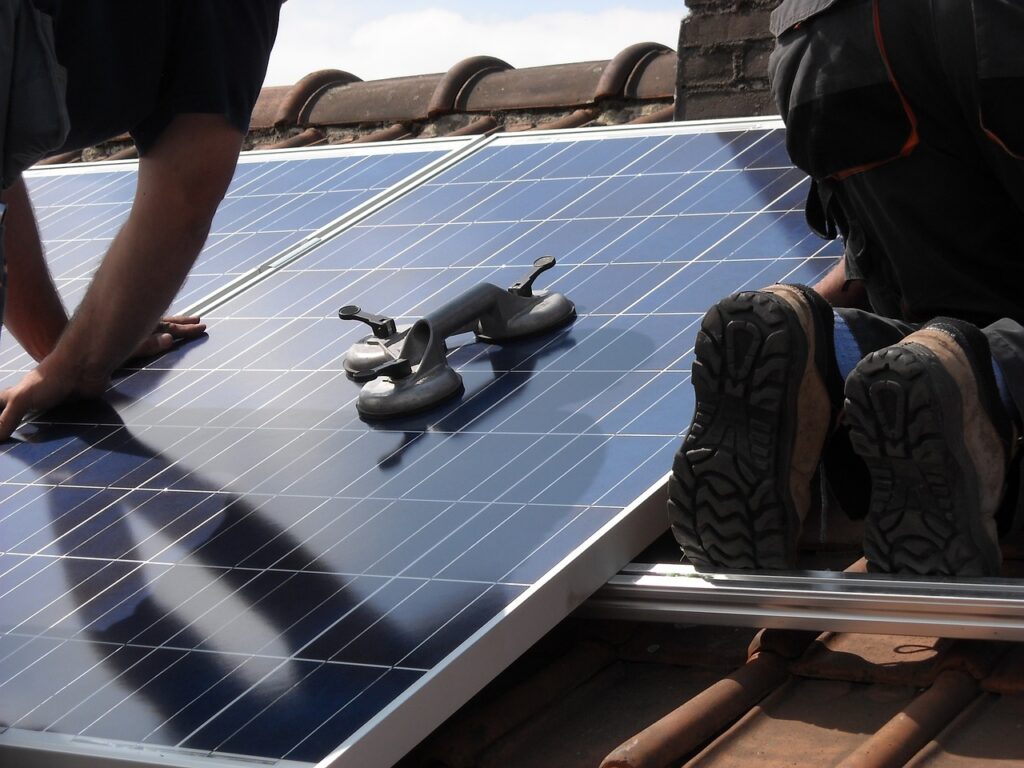
These days it feels like every company wants to know everything about you – including what you had for dinner last night.
There are indeed many businesses out there that want your data, usually for nefarious reasons, but if you’re looking to get solar installed, then you can relax.
A solar company needs lots of information so it can do its job properly and ensure that you end up with a high-performing, customized solar array. And part of that required information is seeing your energy bills.
However, this seems to make people nervous, so we’re here to calm those nerves and explain exactly why energy bills are so important for a solar project.
Let’s jump into the detail.
In a Nutshell
- A solar company needs between four – twelve months’ worth of energy bills
- The data on an energy bill is required to correctly size the solar array and understand energy consumption needs
- They are also needed to calculate savings and generate an accurate quote for the project
- Utility companies place restrictions on how much solar-generated electricity you can produce
- Colorado’s solar energy production limit is 200%
- Avoid solar companies that say they don’t need your energy bills to generate a quote
Why Do Solar Companies Need to See Your Energy Bills?

For Correct Solar PV System Sizing
A well-designed solar PV system should accommodate as close to 100% of your energy consumption needs as possible.
Now, the solar panels aren’t going to be supplying you with 100% of your power round the clock.
The solar arrays should be large enough to produce energy electricity to cover you during the day. They will also be producing excess energy that you send to the grid in exchange for energy credits (a process called “net metering”). These energy credits are then used when the solar panels aren’t generating electricity (such as during the hours of darkness).
A solar PV system that is sized too big will be overproducing electricity. That does not seem like a big issue (the bigger, the better, right?), however, it can actually create a big problem with your utility provider.
See, utilities don’t want everyone producing endless amounts of electricity. Doing so would completely overload the grid and place huge amounts of pressure on the aging infrastructure.
By placing a cap on the amount of electricity you can produce, utility providers can better manage the flow of energy and prevent grid stress.
Understanding Energy Consumption

We consume energy in vastly different ways. While residential electricity consumption is a little easier to predict, commercial consumption can differ wildly from one business to the next.
For example, a dairy farm might have peak usage in the very early morning and in the evening, while a vineyard might have a more steady consumption rate throughout the day.
This information helps your solar developer understand what type of solar PV system you are going to require and enables them to customize the design according to your unique energy consumption needs.
Additionally, the more energy bills you give to a solar company, the more accurate they can be in this area. This is because our energy consumption changes with the seasons. How your business uses electricity is going to look a lot different in the depths of winter than it is compared with the height of summer.
Although a solar company may only ask for four of your energy bills, you can supply them with a year’s worth. This will give the company a complete picture of all twelve months of the year allowing it to be as precise as possible with your solar PV system design.
Calculate Savings
Saving on your energy bills is by far the biggest draw of going solar. However, if your solar developer does not know how much your energy bills are to begin with, then they won’t be able to tell you how much you are likely to save.
Although solar energy can slash energy bills by up to 96%, it’s not always as clear-cut as that and the reason for this is because energy bills don’t just consist of your electricity consumption.
Take a close look at one of your bills. You’ll likely notice a bunch of other charges that the utility provider imposes.
There’s almost certainly a “service charge,” or “customer charge.” This is a fixed monthly cost that you pay to remain connected to the utility provider’s network and helps cover the cost of maintaining the grid.
You may also see:
- Distribution charge: Covers the cost of electricity being delivered to your property
- Demand charge: Charges based on the rate at which energy is consumed during peak demand periods
- Taxes: The tax you pay on top of your energy bill
- There could also be numerous other random charges that the utility provider decides to impose
Unfortunately, these charges aren’t affected by solar energy – regardless of how much of it you produce.
If 70% of your energy bill is electricity consumption and the remaining 30% are fixed charges, then your solar energy will only reduce the 70%.
Therefore, it’s essential that solar companies know what fees your energy bill is composed of so they can accurately determine how much you are going to save each month once your panels are installed.
Your solar developer will also show you how quickly you can get a full return on your investment (ROI). They take your energy bills into account along with the available tax credits and incentives and show you how quickly you’ll gain back the installation and setup costs.
While this information about your energy bills and how much solar can offset may seem like bad news, the savings are still significant. Farms and agricultural businesses can get a full ROI after only one year of using solar energy.
Provide an Accurate Quote
All of the information you provide a solar company goes into developing the design and ultimately the total cost of the project.
Although it’s totally possible for solar companies to provide you with a ballpark figure, they can’t give you specifics until they have designed your solar PV system.
If you plan to secure financing, apply for any solar incentives (like the REAP grant), or need to raise capital another way, you won’t be able to do any of this without a concrete quote in hand.
Does the Size of My Solar PV System Really Matter?

Yes! The size of your solar PV system really does matter – a lot.
And to clarify, when we say size, we’re talking about how many kWh the solar array can produce – not its physical size (the physical size does not matter and there are no restrictions on this).
The exception here, maybe, is if you plan to go 100% off-grid and not maintain a grid connection in any way, shape, or form.
If you’re not connected to the grid then you are not obligated to conform to any energy output restrictions. However, you may need to ask yourself why you would want a solar array that’s too large for your needs.
In another scenario, you may want to size up your solar array if you plan to electrify parts of your business.
Swapping out fossil fuel vehicles for electric vehicles, installing heat pumps instead of gas-powered systems, and other electrification projects will increase your consumption needs.
If this is the case, then you must be very clear with your solar developer and talk to them about what you have planned. They can help you future-proof your solar array so it remains fit for purpose later down the line.
At the other end of the scale, you don’t want to go too small, either.
A solar array that does not cover your electricity consumption won’t do you a great deal of good since it won’t save you a lot of money.
Since we are moving away from fossil fuels and switching to electricity, having a too-small system will do you even fewer favors in several year’s time. You’ll find yourself forking out for upgrades and expansions – something you wouldn’t have to do if you had an adequately sized solar PV system in the first place.
Colorado’s Utility Restrictions
Let’s talk more about those restrictions that utility providers place on solar installations.
Historically, the Public Utilities Commission (PUC) approved and put in place the 120% rule for solar energy. This meant that your solar array could not produce more than 120% of your annual kWh consumption.
This covered you for all your energy needs plus an extra 20% in case the need arose for it.
In 2021, Colorado passed a bill that upped that limit to 200%. Now, you can install a solar array that is capable of producing up to 200% of your annual electricity needs which gives you more flexibility over the size of your PV system and makes it easier for those planning to electricity their businesses.
Common Concerns Addressed

I Don’t Have Many Utility Bills
If you’ve just bought your business and haven’t been operating for long, that’s okay!
Solar companies have calculators that take the square footage of buildings, the systems that require power, and a few other metrics, which then help determine the size of the required solar system.
Although it’s not quite as accurate as taking data from your utility bills, solar developers have the expertise to get it as close as possible.
Why Can’t I Just Give You My Utility Provider and Usage Instead?
The total figure for your energy bill is only a fraction of the story and to design a customized solar array, solar developers need to know more than what you pay each month.
As we have previously mentioned, an energy bill consists of numerous fees, so what you pay, isn’t an accurate reflection of what you use.
Moreover, every utility provider is different and the fees are not uniform, so it would be impossible for a solar company to determine your energy usage from the end figure, even if they knew which utility provider you were using.
If you are concerned about showing the personal information contained on your energy bill to a solar company, you can black it out using a marker pen or similar.
Solar experts are not interested in the account name or number, they just want to see your electricity consumption and all the charges that make up your bill.
Other Solar Companies Give Quotes Without an Energy Bill. Why Don’t You?

This is misinformation. If a solar developer says they can give you an accurate quote without seeing any of your energy bills then they are quite frankly, lying.
What they can do is give you a guesstimate – a ballpark figure – which would be inaccurate at best.
Some less scrupulous companies may do this to try and lure you in but don’t be fooled. You wouldn’t have a home built without first knowing precisely how much it would cost. The same goes for a solar project.
So much goes into getting you an accurate quote, including:
- Property analysis
- Land analysis
- Energy consumption analysis
- State net metering laws
- Tax credits and incentives
- ROI
- And more
If a solar developer is keen to give you a price without performing an analysis on your property, land, and energy bills, then this is a huge red flag and you should probably avoid them.
Contact 8760 Solar for More

8760 Solar is a trusted name in Colorado. We have years of experience under our belt and are the go-to name for farms and agricultural businesses that are ready to make the switch to solar energy.
We don’t give you a price until we’ve fully performed our due diligence. Our team will carry out a full analysis of your farm and surrounding property and, yes, we want to see your energy bills too!
Our quotes are accurate, fair, and, of course, no obligation. If you would like to know more, then we’d love to hear from you.
Text “READY” to 719 470-0254 or contact us via email: sales@8760solar.com.
Frequently Asked Questions
How Many Utility Bills Does a Solar Company Need?
A reputable solar company will ask to see at least four months’ worth of energy bills. However, to get the most accurate solar PV system sizing and quote, you should provide energy bills for the past 12 months. The more information your solar company has, the better it can address your energy needs.
Do I Have to Show a Solar Company My Energy Bills?
Yes. Any solar company worth its salt will ask you to provide energy bills as part of the design process. By understanding your energy consumption over time, your solar company can create a design for an appropriately sized PV system.
What Does a Solar Company Do With My Energy Bills?
A solar company uses your energy bills to assess how much electricity you consume and how you consume it. By understanding these metrics, your solar company can design a solar array that is the right size for your requirements.
Can I Refuse to Show a Solar Company My Energy Bill?
You can refuse to show a solar company your energy bills but it is not advisable to deny access to this information. Solar companies need to see your energy bills so they can provide you with a customized PV design and quote. If you are concerned about a solar company seeing personal information, you can black it out beforehand.
